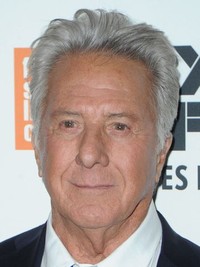Dustin Hoffman

Dustin Hoffman emerged as a key figure in the Hollywood Renaissance period of the 1960s and 1970s, personifying identifiable misfits and antiheroes in films embraced by a new breed of filmgoer. After struggling on and off Broadway, the Strasberg-trained actor rocketed to fame as the star of director Mike Nichols' seminal "The Graduate" (1967). Chameleon-like characters in such diverse efforts as "Midnight Cowboy" (1969), "Little Big Man" (1970), "Straw Dogs" (1971) and "Papillon" (1973) solidified his growing reputation. The one-two punch of the hits "All the President's Men" (1976) and "Marathon Man" (1976) proved Hoffman could deliver at the box office as well. More so than any other actor of the period, he pleased critics and fans alike with his performances in "Kramer vs. Kramer" (1979), "Tootsie" (1982) and "Rain Man" (1988), winning Best Actor Oscars for two of these three nominated performances. Over the decades that followed, Hoffman divided his energies between strong supporting work in projects like "Sleepers" (1996) and sharing top-billing with fellow heavy weights like Robert De Niro in such films as "Wag the Dog" (1997). In the new millennium, he enjoyed a creative and commercial resurgence with a run of playful comic performances in "I [Heart] Huckabees" (2004), "Meet the Fockers" (2004), and the hit animated feature "Kung Fu Panda" (2008). He also appeared in the sequeles to the latter film, "Kung Fu Panda 2" (2011) and "Kung Fu Panda 3" (2016), in addition to roles in Jon Favreau's "Chef" (2014) and the critically acclaimed "The Meyerowitz Stories" (2017). Hoffman boasted a film career that spanned more than four decades and consistently delved into new creative territory, validating his status as one of the most gifted actors of his generation or any other.